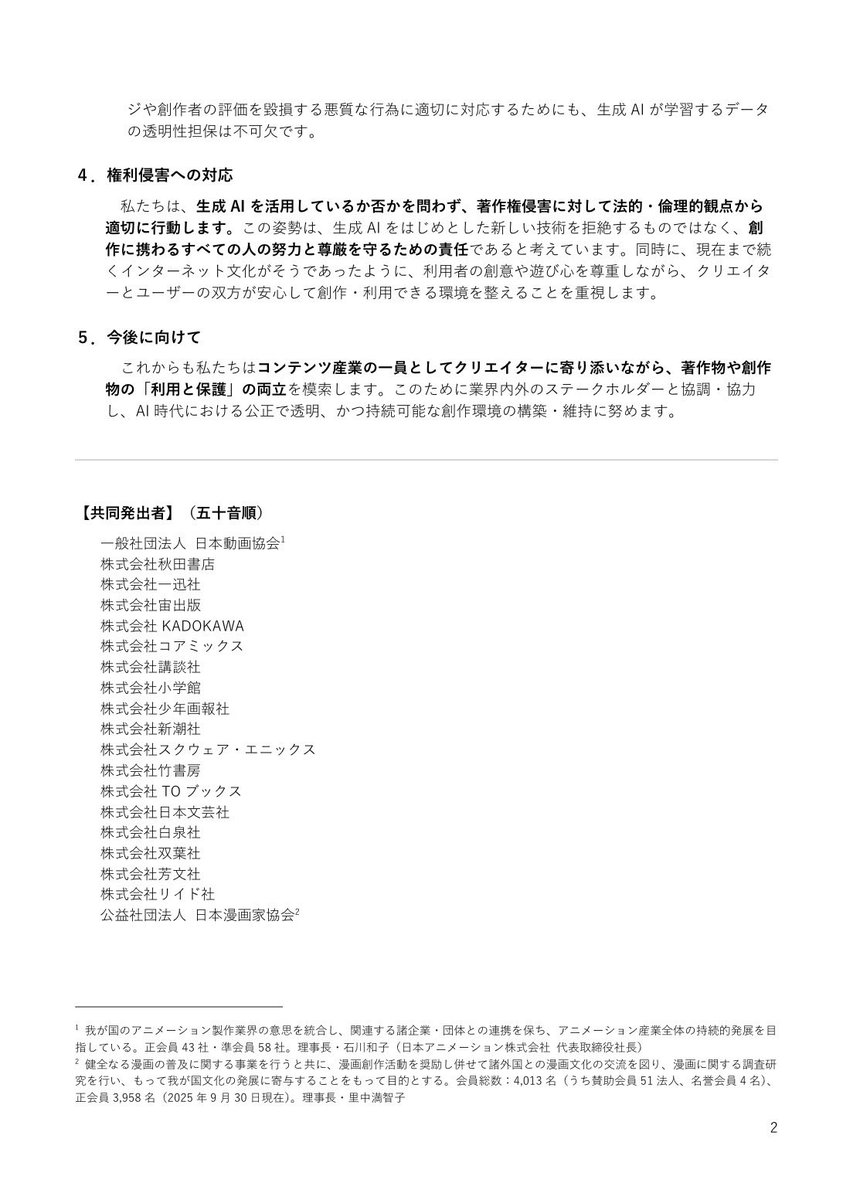
**Title: CODA of Japan Seeks to Stop OpenAI from Utilizing Japanese Media for AI Training**
Recently, the Japan Content Overseas Distribution Association (CODA) has officially asked OpenAI, the entity behind ChatGPT, to discontinue the use of Japanese media in training its text-to-video model, Sora. This appeal emphasizes ongoing worries about the employment of copyrighted material in AI training without explicit consent.
CODA represents a significant segment of Japan’s media landscape, encompassing major publishers such as Square Enix. Their appeal highlights the escalating friction between AI developers and content creators concerning intellectual property rights. The association claims that OpenAI’s methods violate the rights of Japanese media creators, since the data employed in training AI models frequently comprises copyrighted content sourced without permission.
This scenario mirrors a wider concern within the AI sector, where numerous models are trained on extensive datasets collected from the internet, often without securing approval from the content owners. Although this tactic accelerates AI progression, it raises ethical and legal dilemmas regarding copyright violations and the appropriate use of digital content.
The saying “It’s simpler to seek forgiveness than permission” appears to have influenced many AI developers, including OpenAI. Yet, this approach may not hold up as content creators and legal organizations become increasingly proactive in safeguarding their intellectual property.
OpenAI’s Sora, a text-to-video model, depends on varied media inputs to enhance its performance. Nonetheless, the incorporation of Japanese media without suitable authorization has led CODA to take measures, stressing the necessity for AI developers to create transparent guidelines and agreements with content proprietors.
As AI technology progresses, the industry must tackle these legal and ethical obstacles to nurture a collaborative relationship with content creators. This episode is a poignant reminder that honoring intellectual property rights is vital for the sustainable advancement of AI technologies.
In summary, CODA’s appeal to OpenAI underscores the significance of securing permission before utilizing copyrighted material in AI training. As AI models grow in sophistication, it is essential for developers to responsibly navigate the intricate realm of intellectual property rights.